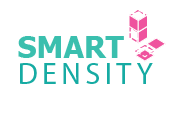Part 1 was one of our most popular blog posts ever! So we decided to update it with a part 2!
Here is a selection of notable funds with a range of incentives, this article navigates through many options, highlighting some key financial pathways to achieve affordable housing by all 3 levels of governments.
City of Toronto Incentives
Open Door Program
This Program (RFP) issued annually, offers capital-funding, limited fee-waivers, and a streamlined planning service for affordable-rental units with a 40-year period of affordability.
✓ Eligible
- New Construction
- Conversion of non-residential buildings to purpose-built rental housing
- Addition of new affordable buildings/units to existing sites/buildings
- Social housing redevelopment that involves building new affordable units
✗ Ineligible
- Nursing and retirement homes
- Shelters and crisis care facilities
- Student residences
- Rental housing provided in a condominium-registered building
Application Window: Annual (3 to 4 months)
- 2017 Call for Applications: February 2017 — May 2017
- 2018 Call for Applications: January 2018 — March 2018
- 2019 Call for Applications: February 2019 — May 2019
- 2020 Call for Applications: September 2020 — November 2020
- 2021 Call for Applications: November 2021 — February 2022.
- 2022-2023 Program Undergoing Revisions no call for applications Issued
Housing Now Initiative
Long-Term lease of surplus City-Lands. Targeted to developers with mandatory partnering with non-profits, supportive/affordable housing providers for affordable-units with a 99-year period of affordability.
Application Window: Varies
Multi-Unit Residential Acquisition Program
Announced in 2022, the MURA program provides non-profit housing organizations with funding to purchase at-risk market affordable rental housing for conversion to permanently affordable rental homes.
✓ Eligible Proponents
Non-Profit groups that
- Have experience with the purchase of affordable rental properties or are working with capable partners
- Having strong management experience providing safe, good quality affordable rental housing
- Have experience and capacity to complete any necessary repairs of the acquired property
- Will provide support services for vulnerable tenants (directly or through partnerships)
✓ Eligible Properties
- Apartment buildings with 6 to 60 units
- Multi-tenant houses/rooming houses that are licenced, can be licenced, or are legal non-conforming
- Dwelling Rooms
- Buildings that can be brought into conformity with municipal requirements
- Buildings that can be operated with a building average of 80% at market rent
Application Window: Annual (Approximately 4-5 weeks)
- 2022 Request for Proposals: March 31, 2022 — May 2022
- 2023 Request for Proposals: April 2023 — May 2023
We are hosting a Roundtable discussion with 3 experts (Portland, Chaelotte and Vienna) to learn about more strategies to deliver affordable housing.
Provincial and Federal Incentives
National Housing Strategy
A 10-year, $40-billion strategy announced in 2017 to be primarily administered by the CMHC. Various funds are under this strategy including Seed Funding, Preservation Funding, the NHS Co-Investment Fund, Affordable Housing Innovation Fund, and so forth.
National Housing Strategy Co-Investment Fund (NHS)
The National Housing Strategy Co-Investment Fund provides low-interest loans, forgivable loans, or contributions to build new affordable housing. It prioritizes partnerships between governments, non-profits, the private sector, and other partners. Some funding must already be secured to qualify.
Per the Federal Budget 2023 Boost Funding, projects could receive up to $75,000 per unit for exceeding affordability and energy efficiency standards and up to $25,000 per unit for meeting minimum social outcome requirements.
Application Window: Available
✓ Eligibility Requirements
- Community housing providers
- Municipalities
- Provinces and territories
- Indigenous governments and organizations
- Private Sector
✓ Project Eligibility Requirements
Primarily residential buildings with a minimum of 5 units/beds. The project must have support from another level of government.
|
Apartment Construction Loan Program (CMHC Rental Construction Financing Initiative)
The CMHC Rental Construction Financing provides low-cost funding to eligible borrowers during the risky phases of developing rental apartments. This initiative focuses on standard rental apartment projects with general occupants and does not target retirement homes, single occupancy, and student housing.
The minimum loan is $1,000,000 to a maximum of 100% of Loan to Cost for residential components.
The program will be reformed to the Apartment Construction Loan Program in 2025-26 with an additional funding of $15 billion.
✓ Eligibility Requirements
- Have at least 5 rental units
- Have a loan size of at least $1 million
- Respond to a need for rental supply
- Have zoning in place and a site plan process with a municipality, and a building permit available
✓ Key Requirements
Primarily residential buildings with a minimum of 5 units/beds. The project must have support from another level of government.
|
CMHC Rapid Housing Initiative
The Rapid Housing Initiative provides capital to create new affordable and permanent affordable housing units. This program operates in rounds and is currently closed. 3 Rounds have been completed in the Rapid Housing Initiative.
Application Window: Closed
- Round 1: October 2020 — March 2021
- Round 2: June 2021 — March 2020
- Round 3: December 12 — March 2023

